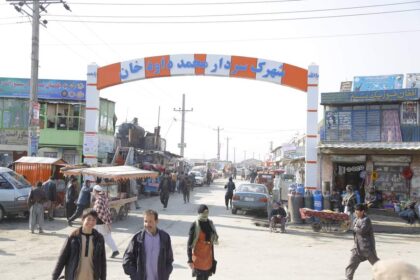RASC News Agency: Kabul: Richard Bennett, the United Nations Special Rapporteur on human rights in Afghanistan, has urgently called for a transparent and independent investigation following the appalling self-immolation of a 20-year-old woman named Abida in the Tiura district of Ghor province. This tragic act, reportedly carried out in protest against a forced marriage orchestrated by a Taliban member, has become a searing symbol of the systemic gender oppression faced by Afghanistani women under the Taliban’s repressive regime. Bennett, writing on the social media platform X, described the incident as “deeply disturbing” and offered his condolences to the grieving family. He emphasized the necessity of uncovering the truth behind the event and ensuring accountability for the perpetrators.
According to credible local reports, Abida set herself ablaze after resisting coercion by a Taliban affiliate who attempted to force her into marriage with his brother. In a country where the Taliban have dismantled virtually every mechanism for legal redress and gender protection, Abida’s act of despair reflects the brutal conditions under which countless women are now forced to live. The reaction from civil society has been immediate and fierce. Women’s rights activists, both inside Afghanistan and in the diaspora, have condemned the Taliban’s role in facilitating an environment of fear, violence, and systemic silencing. They argue that incidents like Abida’s are not anomalies but the logical and tragic consequence of a governing structure built on misogyny and authoritarian control.
“This is not merely a case of domestic violence it is a political crime,” said Nazia, a women’s rights advocate based in Kabul (name changed for security reasons). “The Taliban’s policies have reduced women to voiceless subjects, stripped of all protections. Abida’s flames are a desperate scream into a world that continues to negotiate with her oppressors.” Since regaining control of Afghanistan in August 2021, the Taliban have implemented a sweeping agenda of gender apartheid, revoking the hard-won rights of women and girls with alarming speed and brutality. Girls have been banned from attending secondary schools and universities, women have been purged from nearly every public and professional sphere, and restrictive edicts mandate male chaperones for even the most basic forms of mobility.
What remains of civil society is being crushed under the weight of a regime that criminalizes female presence in public spaces. Even women’s voices have been banned from the airwaves in many provinces. The Taliban’s so-called Ministry for the Promotion of Virtue and Prevention of Vice continues to function as a de facto morality police, harassing and detaining women who attempt to leave their homes for work or education. In his statement, Bennett stressed the urgent need for robust psychosocial support and mental health resources for women trapped under Taliban rule. He warned that the Taliban’s gender persecution is not only a violation of international law it is a humanitarian catastrophe in progress. Bennett has previously characterized the Taliban’s policies as a form of “gender apartheid” and “crimes against humanity,” terms that now seem tragically validated by Abida’s death.
Human rights organizations are now pressing the international community to move beyond mere condemnation. “Symbolic outrage is not enough,” said Farzana Qaderi, a civil activist from Herat. “The global community must impose clear political and economic consequences for the Taliban’s violations. Engagement without accountability is complicity.” Abida’s death has reignited calls for international mechanisms to be activated, including targeted sanctions against Taliban leaders, the freezing of assets used to entrench repression, and the suspension of any diplomatic overtures that do not place women’s rights at the center of negotiations.
In its current trajectory, Afghanistan under the Taliban represents a dystopia for women one where survival itself is an act of resistance. Abida’s self-immolation is not only a tragedy it is a damning indictment of a world that has largely abandoned Afghanistani women to their fate.






